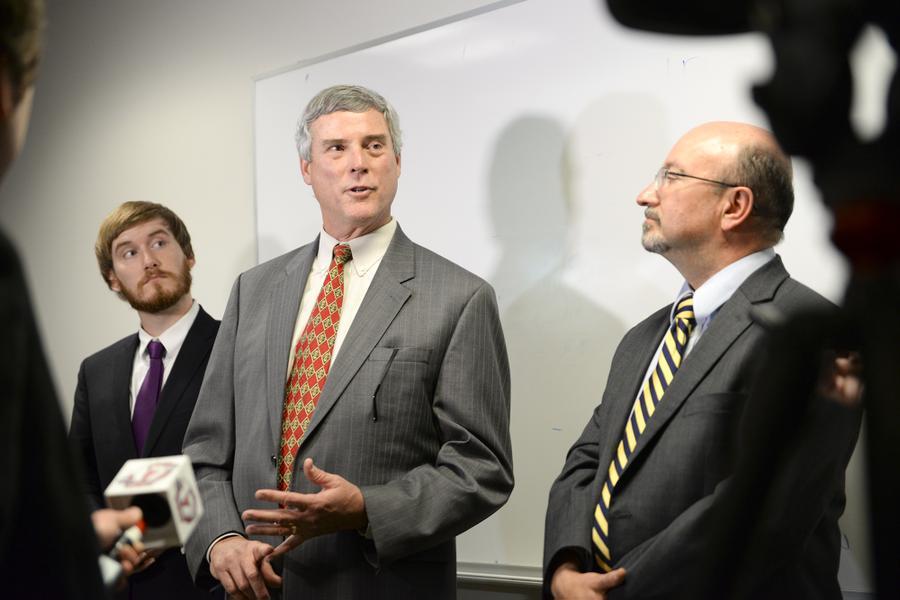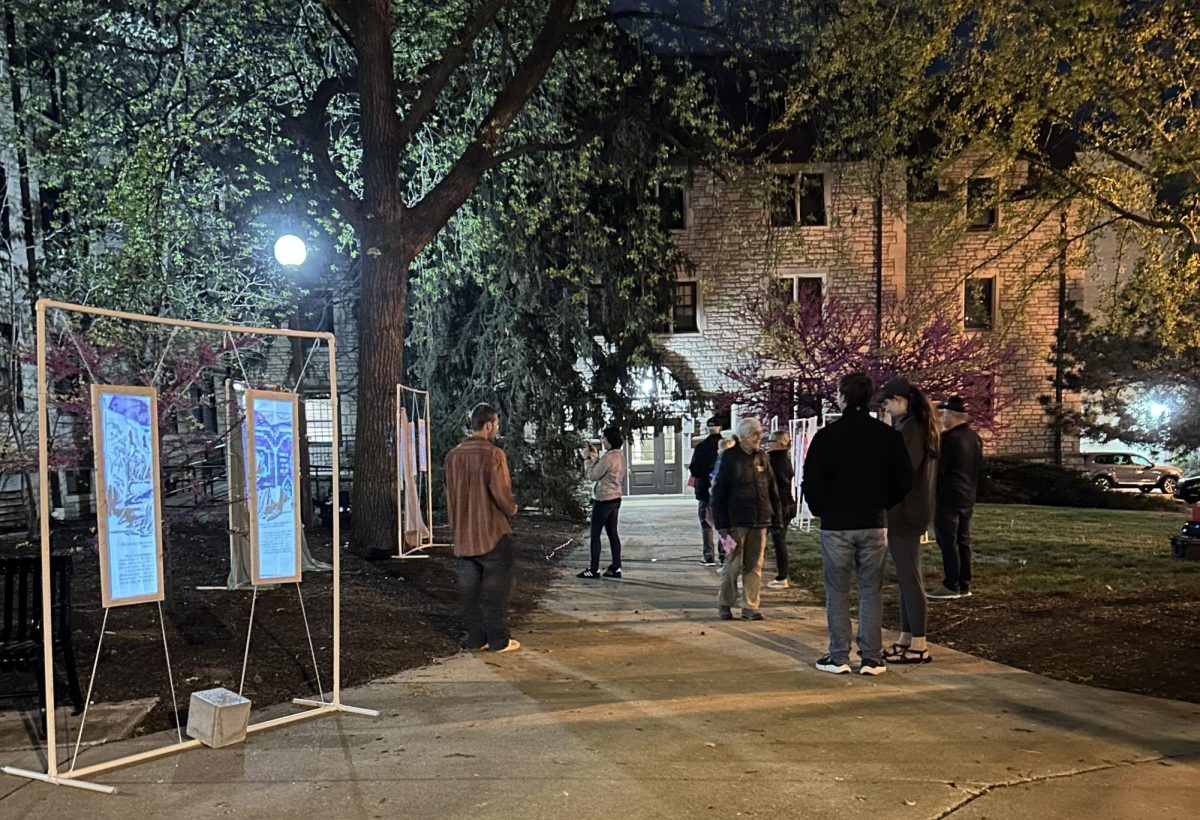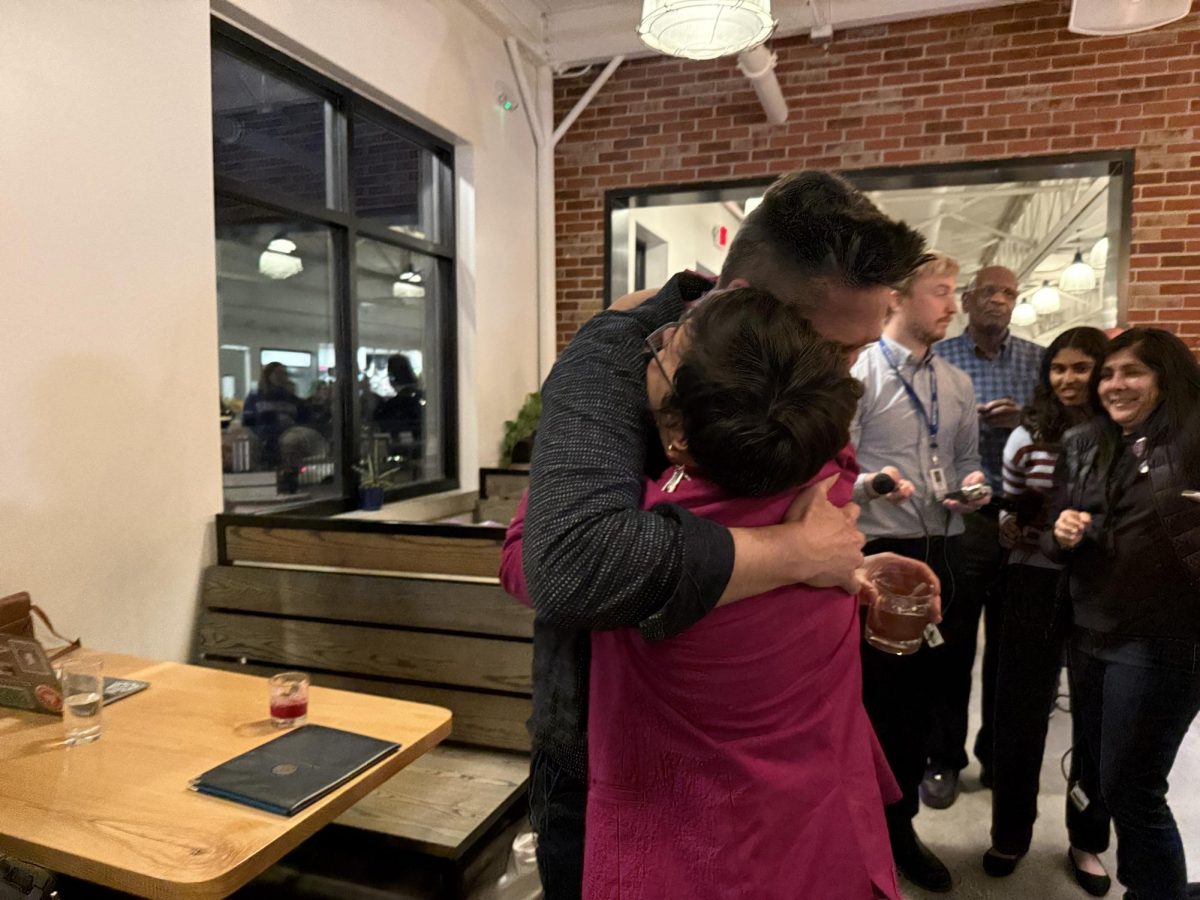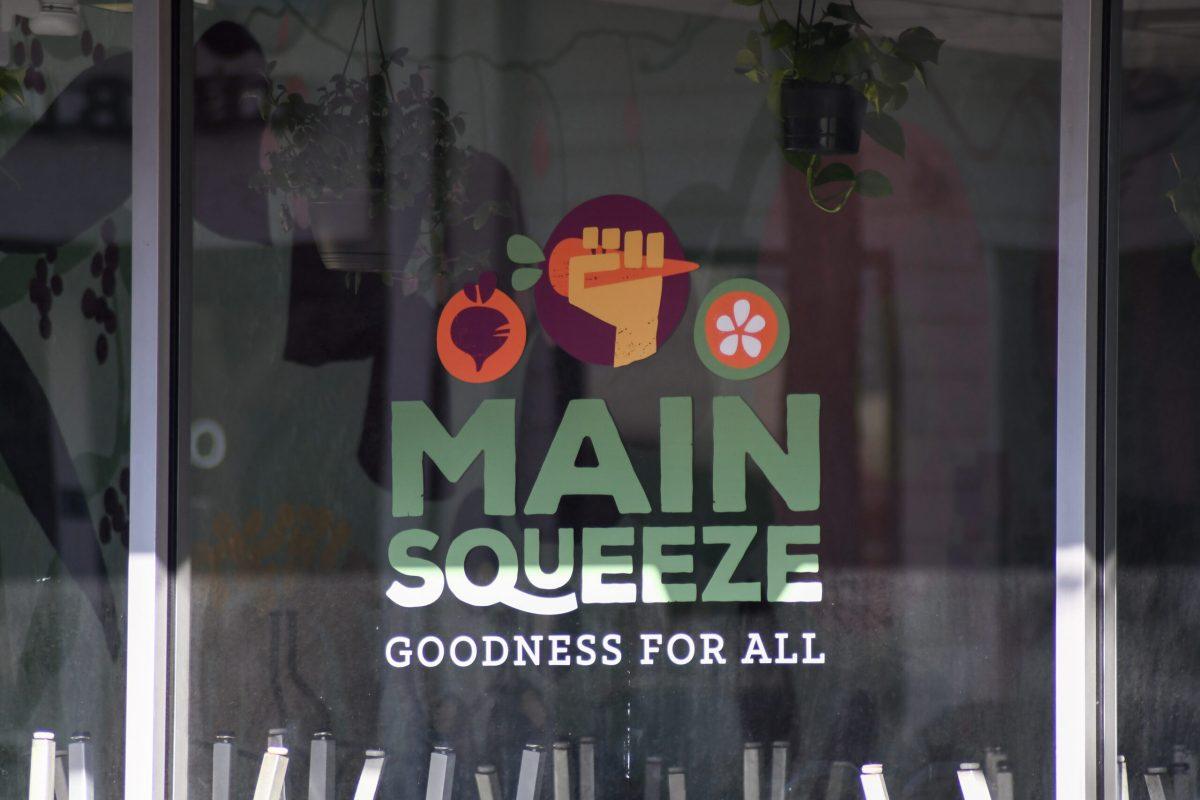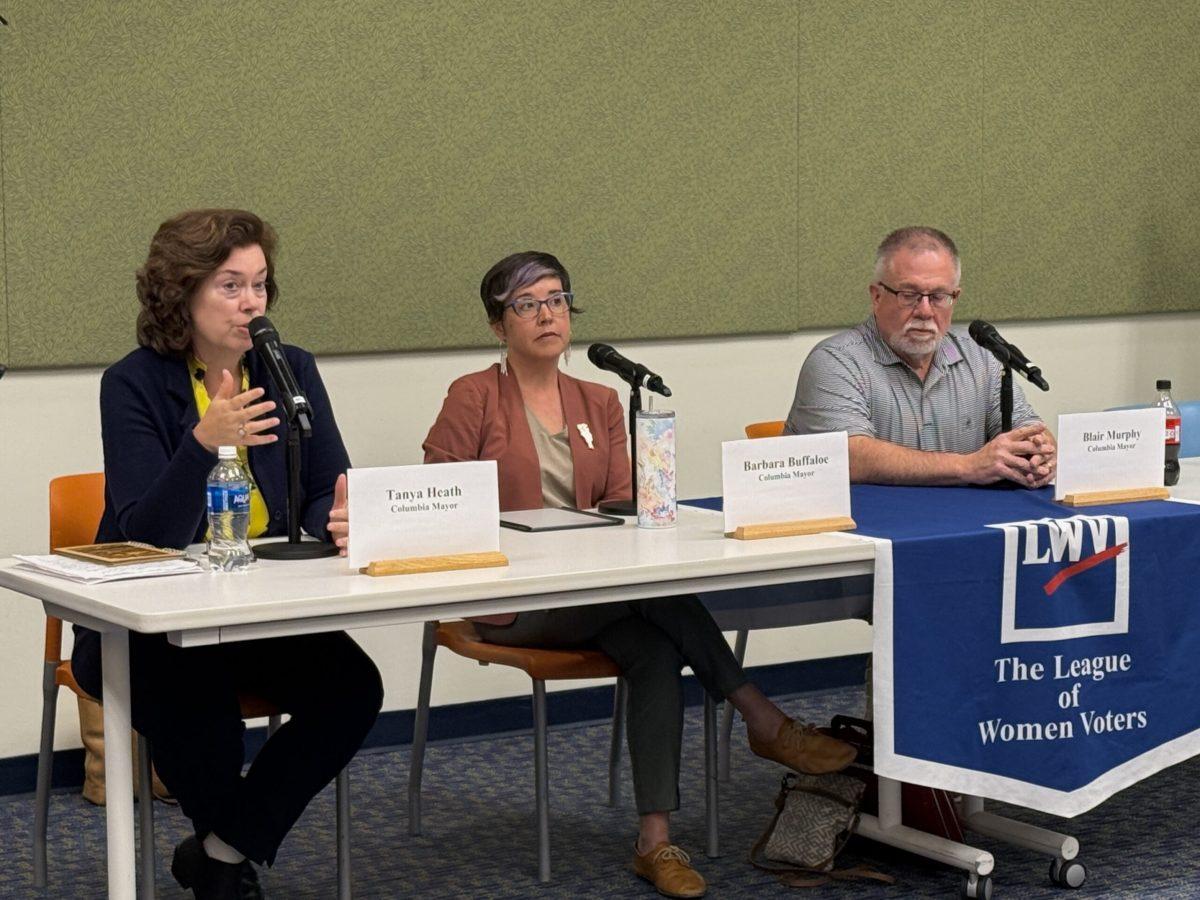The polarizing St. Louis County prosecuting attorney who handled the controversial Michael Brown case spoke to a group of law students and professors Tuesday night.
Bob McCulloch’s speech, organized by the Missouri Association of Prosecuting Attorneys student chapter in Hulston Hall, was about the grand jury process in the Brown case. The event was only open to MU School of Law students and not members of the public or the press.
McCulloch said in a press conference after his speech that the audience asked tough questions and that it was a “great discussion.”
“I hope that (students) will have a greater understanding of the criminal justice system,” he said. “I hope they got a better understanding of how grand juries work and a better understanding of what went on in this particular case. A lot of what was tossed out in the media just didn’t happen.”
A group of about 20 protesters, organized by Occupy COMO, gathered outside Hulston Hall before the speech. Protesters criticized McCulloch’s divisive record as a prosecutor and the choice by organizers to make it open exclusively to law students. MU professor Sandy Davidson, who specializes in communications law, said she didn’t see any “red flags.”
“Just because it’s a public facility, doesn’t mean that it’s open to the public per say,” she said.
She said even though she gives lectures at a public university, they aren’t open to the public. The same rules applied to McCulloch’s speech, she said.
But Mid-Missouri Fellowship of Reconciliation Coordinator Jeff Stack said the situation still made him feel uneasy.
“I’m just concerned (and) saddened about the presence at the university of McCulloch, because it seems like it was handled in a secretive way,” he said. “There was little notice for the public to be involved and talk to him in a forum.”
Law School Dean Gary Myers said during the press conference following the speech why the event was open only to law students and faculty.
“This was a student-initiated and student-sponsored event,” Myers said. “We had a registration process and by the conclusion of that process, all the seats had been filled. It was designed primarily to be a law school event so that (McCulloch) could have that discussion and dialogue.”
MAPA Student Chapter President Ryan Nely said he extended an invitation to McCulloch and began planning the event a few weeks ago.
“I learned that our student body can ask really tough questions in a really respectful way,” Nely said. “It’s important to remember this is one part of an ongoing conversation we’ve been having for the past year and that we’re going to keep having.”
Law student Samantha Green live-tweeted the event using #MUMcCulloch in an effort to make the information available to as many interested people as possible.
“I think all things considered it went really well,” Green said. “I was excited to hear McCulloch’s view, as a prosecutor, but I walked away feeling like we didn’t address much during the event. He didn’t answer questions directly and I didn’t have my concerns and questions discussed. But being able to watch the law school community interact and react was valuable.”
McCulloch said he received criticism as a result of the failure of the grand jury to indict Ferguson police officer Darren Wilson.
“I don’t understand the criticism that I gave the grand jury too much information,” McCulloch said. “I don’t understand how you can give a decision-maker too much information. If I’m trying to make a decision, I want as much information as I can get.”
McCulloch said the students he spoke to tonight wanted to know what he was doing to “avoid issues like this” in the future.
“We need to communicate with the public a lot more than we did,” he said. “Prosecutors need to get out more and explain the process and the system.”
This event came two weeks after Chancellor R. Bowen Loftin [held another in a series of race relations forums](https://www.themaneater.com/stories/2015/3/18/dministration-criticized-lack-action-race-relation/) in an effort to further dialogue about race.
Carl Kenney, a pastor at Bethel Baptist Church and adjunct journalism professor, said the decision to invite McCulloch was inconsiderate to students who have been frustrated with the MU administration.
“I think allowing McCulloch to come here is bad timing and there is no justification for the law school to be allowed to have him come for the life of this university,” Kenney said. “It follows a community conversation about race on this campus, and for the chancellor to allow this to happen shows a disregard for what happened last week. If the attempt of the event last week was to create an olive branch, this destroyed all of that.”
McCulloch responded to protesters by supporting their right to discuss the issues.
“I’ve always encouraged people to speak their mind and if they want to protest, you should get your views going, but allow it for a way to let others do the same thing,” McCulloch said. “It’s a good idea to have this discussion and see where things go.”

